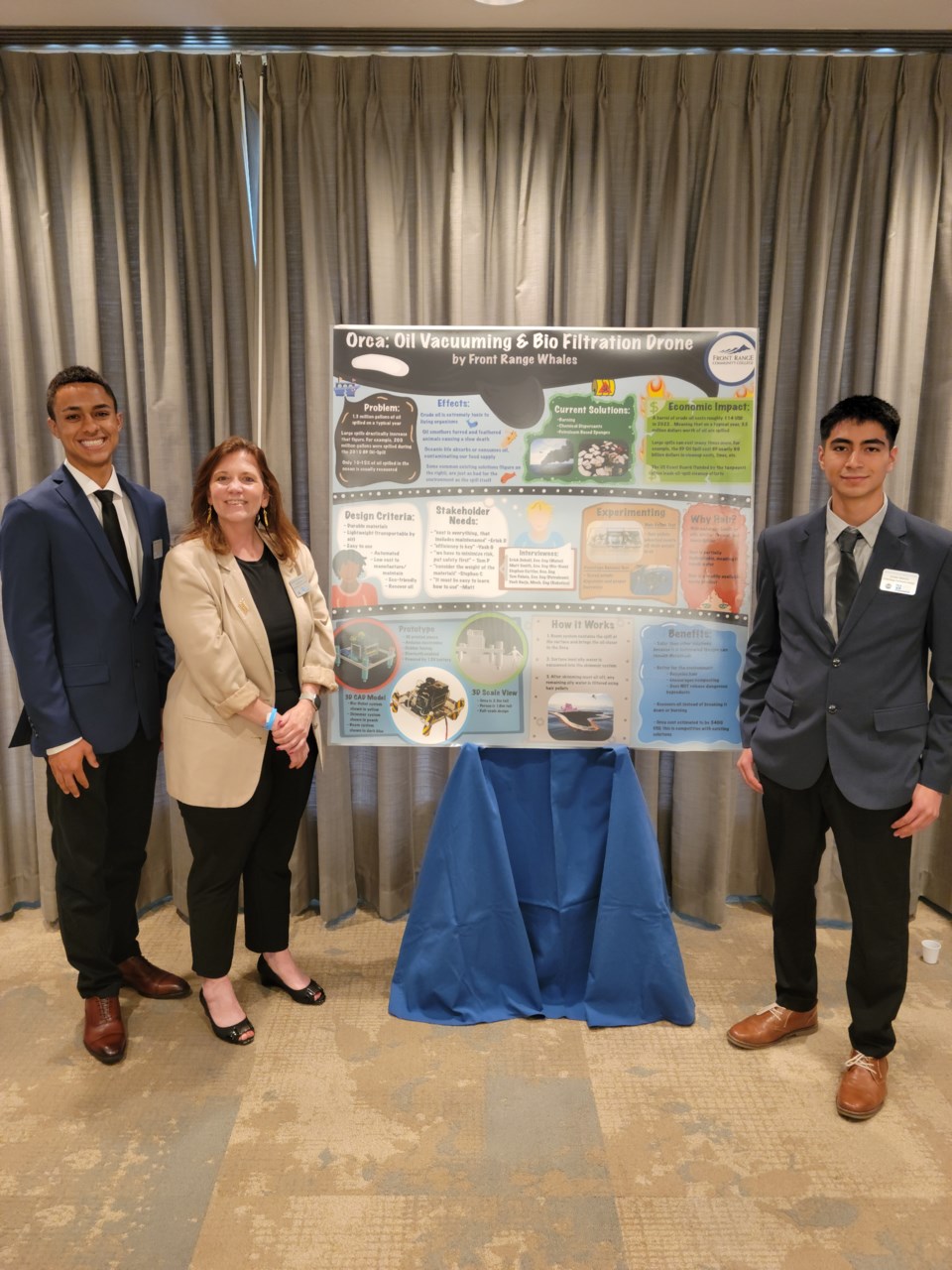Two Front Range Community College students won second place at the national Community College Innovation Challenge in Washington, D.C. this month for their design of a drone that cleans up oil spills.
Cristian Madrazo and Xavier Cotton spent long nights and weekends designing the Orca Oil-Vacuuming and Biofiltration Drone, which uses an oil-absorbing material and hair to clean up and filter oil out of water.
Madrazo and Cotton worked with Front Range Professor Diane Rhodes on the project and were selected as one of 12 finalists for the competition sponsored by the National Science Foundation and American Association of Community Colleges.
“I had no doubt they were going to be finalists when I first read (the project,)” Rhodes said.
The drone uses a boom system to contain the oil spill and skim off the surface level oil, and then filters the water through hair pellets to remove the remaining oil. Hair naturally bonds to oil and absorbed five times its weight in oil in testing, according to the team's presentation.
Madrazo and Cotton faced plenty of challenges in the design process, from 3D printers not working to coding difficulties. The duo even decided to rework their design after meeting with a mechanical engineer and learning about the difficulties and safety issues in using a boat, which was their original plan.
But the most significant lessons came from working alongside each other, Madrazo and Cotton said.
“Neither of us are yes men or really argumentative. We could disagree with each other a lot and still talk it out super efficiently and come to a middle ground of understanding,” Cotton said.
“Neither of us were afraid to disagree with Professor Rhodes or each other, and that was one of the best things about our team,” Madrazo added.
Walking into the competition in Washington, D.C. was daunting at first, Cotton said, and the feeling of being an imposter was strong.
But getting to know their fellow competitors was a valuable experience, he said, as was learning that these “absurdly smart” people were actually normal – if extremely hard-working – people.
“Now I don’t believe in smart people, I believe in hard workers and I think if I try really hard at everything I do, don’t half do it and do it with the intention of winning, I can do anything," Cotton said. "That just set into me. I truly believe that now, and it took this for me to believe it.”
The future of the Orca device is on hold for now as both Madrazo and Cotton continue pursuing their engineering degrees.



